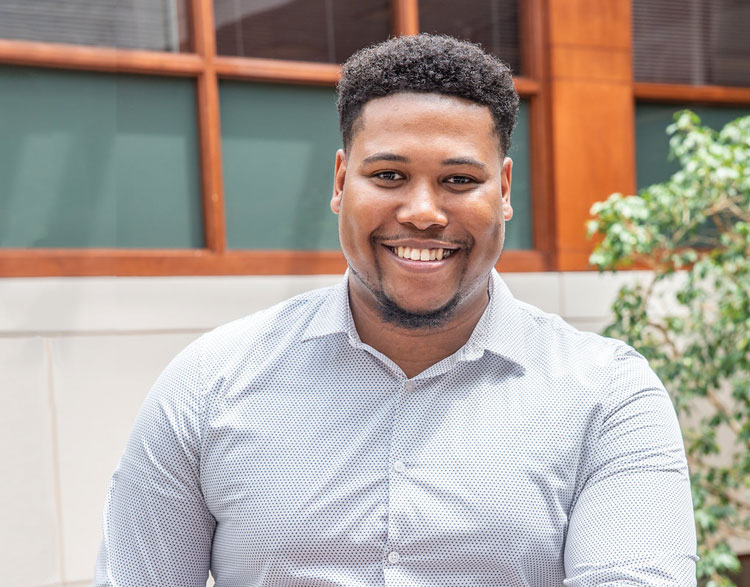
Photograph of Miguel Willis by David Fonda Photography.
As a 1L at the Seattle University School of Law, he created an online textbook marketplace for law students. As a 2L, he started the Access to Justice Tech Fellows program, which awards 10-week summer fellowships to law students working on using technology to improve access to legal services.
With no initial funding, he had to hustle up enough grants to support his fellows, and they didn’t stretch to an administrative salary.
“I raised enough funding for the fellows, but I didn’t have enough to run the program,” he says. “So I, in essence, became a fellow in my own program.”
That fellowship sent Willis to Alaska, where he helped the Alaska Court System develop its Justice for All Project for improving A2J. In Alaska, that’s not just a question of poverty; most of the state’s small communities are many miles away from urban areas where lawyers congregate. Furthermore, they’re often not connected to the big cities with roads, which means travel is difficult and expensive. For Alaska Natives, who often live in the villages, there can also be language and cultural barriers.
Willis saw all this firsthand during his fellowship while visiting six hub communities—regional centers for government services. He came away impressed by Alaskans’ openness to approaching legal problems in an innovative way, something he’d seen pushback against in the Lower 48.
“I think that’s just due to the sheer need and necessity,” says Willis, who grew up in Seattle and Washington, D.C. “They take an all-hands approach to figuring out some of these problems.”
The Justice for All plan Willis helped create calls for the legal community to work with existing medical and law enforcement providers, who are more likely to be in the villages, to screen people for potential legal needs. Willis continued to develop that plan after his fellowship ended, spending another year working on Justice for All while also running the Access to Justice Tech fellowships. That included creating a social network analysis for Justice for All—something he had to learn from scratch.
Stacey Marz, director of self-help and language access services for the Alaska Court System, says Willis wasn’t daunted by the challenge.
“The thing that’s so great about Miguel is that he is obviously really smart and passionate, but he’s also really fearless because he was willing to jump into using some technology that had not been used in a legal context before,” she says. “We just turned him loose and said, ‘Figure this out.’ “
Willis is arguably now doing a third job he created himself: He’s the Law School Admission Council’s first presidential innovation fellow. The fellowship funds his Access to Justice Tech fellowship work until 2020, and he says he’s also working with LSAC on creating more diversity in the pipeline of law students.
Willis is enthusiastic about legal technology and its potential to expand access to justice. But he warns that human need, not the technology itself, should be the driver.
“There needs to be a steady pipeline of law students learning how to leverage technology. There needs to be a core emphasis on making this space diverse and inclusive,” he says. “By us not addressing those issues now, I think we put ourselves at risk that some of the societal problems that curtail legal service delivery are exacerbated and hard-coded” into software.
Corrected to remove an incorrect reference to Alaskan cities and towns and an incorrect number of small communities in the state.